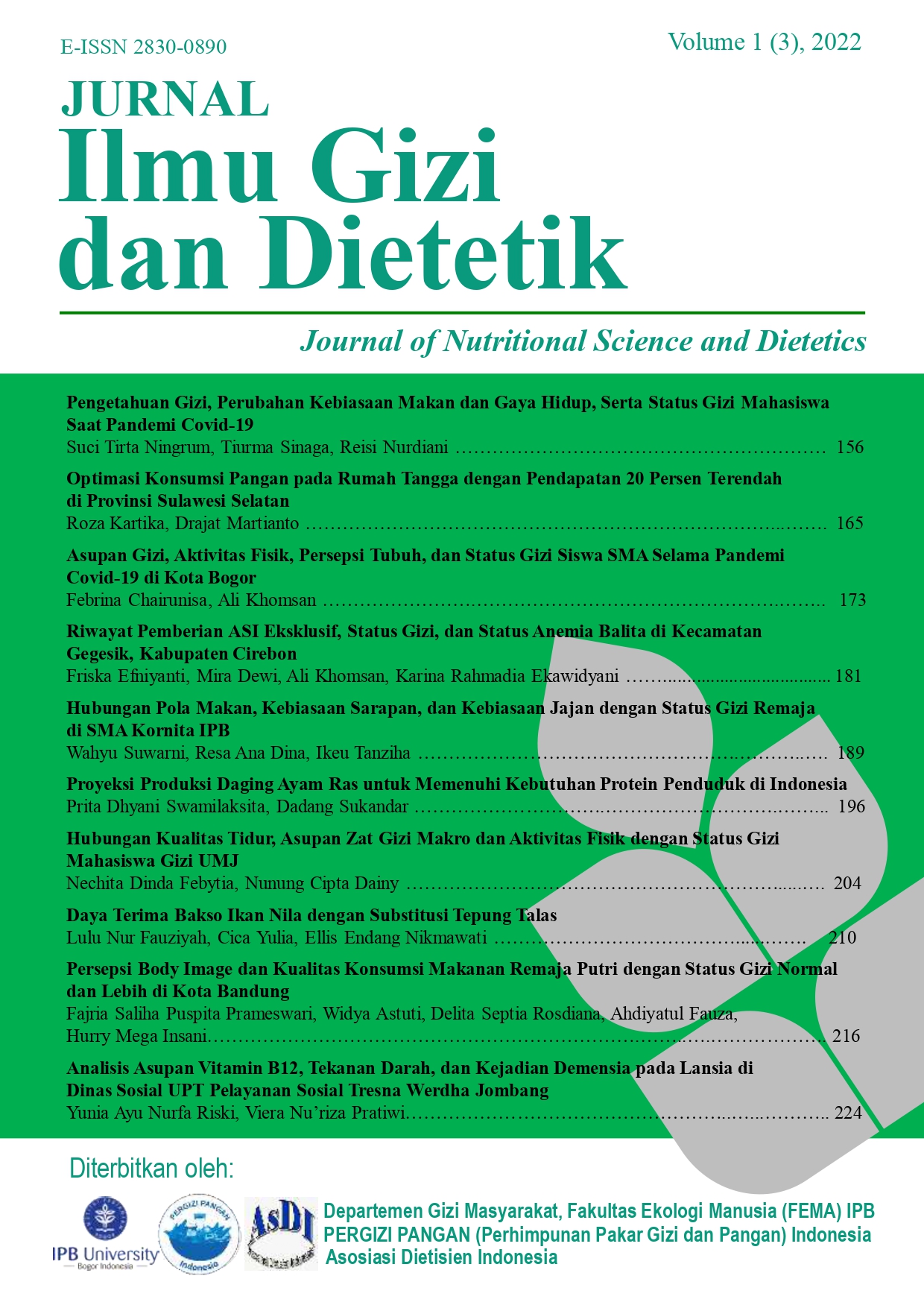Hubungan Kualitas Tidur, Asupan Zat Gizi Makro dan Aktivitas Fisik dengan Status Gizi Mahasiswa Gizi UMJ Relationship between Sleep Quality, Macronutrient Intake and Physical Activity with Nutritional Status of UMJ Students
Abstract
In the adulthood, physical activity may become higher and it leads to the metabolic changes as the increase of age. Within this age, people may prone to consume an excess amount of food intake, lifestyle changes, high pressure from the environment, lack of exercise, and high stress that could be attributable to the changes in foods pattern, hence may lead to the malnutrition problem. The purpose of this study was to determine the relationship between sleep quality, macronutrients intake, and physical activity with nutritional status of students in the UMJ Nutrition Science Study Program. Study design was a cross sectional with the number of subjects were 52 students. Sleep quality was measured using the Pittsburgh Sleep Quality Index (PSQI) questionnaire, while macronutrient intake was collected by 24-hour food recall questionnaire, and physical activity was measured by the Physical Activity Level (PAL) questionnaire. Result of the Fisher Exact Probability Test showed a significant relationship between fat intake and physical activity with nutritional status (p<0.05), however there was no relationship between sleep quality, energy, protein and carbohydrate intake with nutritional status.

